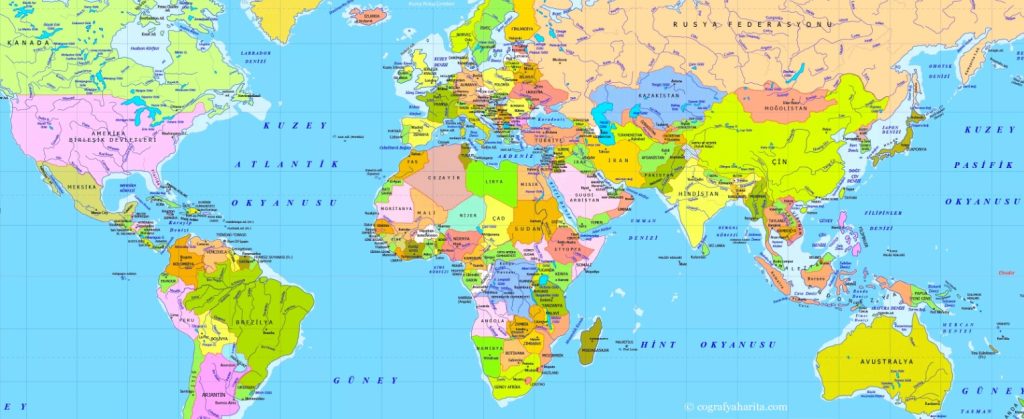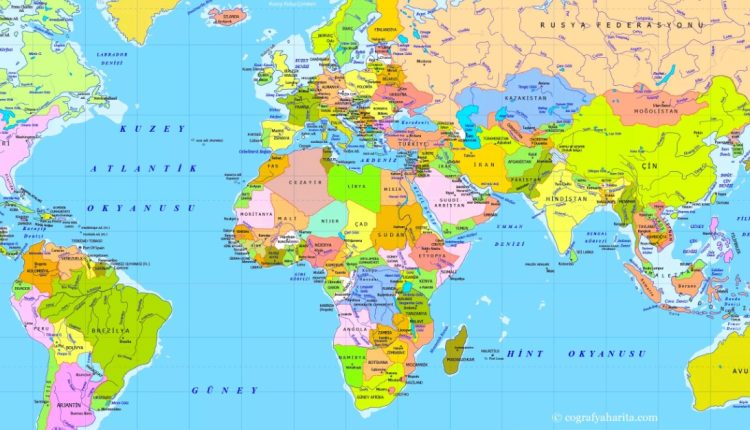Living Abroad: A Comprehensive Guide and Tips for a Successful Move
Living abroad is a dream for many who seek to experience a different lifestyle in a new country. This adventure can be motivated by various reasons such as work, education, or investment in real estate. No matter the reason, learning new languages, discovering different cultures, and meeting new people can enrich your life with unforgettable memories.
In this detailed guide, we will cover the steps necessary for moving abroad, how to evaluate the living conditions of different countries, and the key details you might face during this process. Additionally, we will provide tips for making your life abroad easier and explore the quality of life in various countries.

Introduction to Living Abroad
The decision to live abroad is one that comes with great excitement and certain challenges. It’s an opportunity to build a life enriched by diverse cultural experiences, broaden your professional horizons, and learn how different societies function. However, a successful move requires thorough preparation and planning, especially when it comes to selecting the ideal destination.
Choosing the Right Country
The most crucial part of deciding to live abroad is choosing the right country. There are several factors to take into account, such as living conditions, economic stability, job opportunities, healthcare, and the quality of education. Before making the move, it’s essential to conduct in-depth research to determine which country aligns with your preferences, budget, and goals.
Some effective ways to gather information about a country include connecting with people who have lived there, joining online forums, and reading expatriate blogs. Websites like government portals, forums like Reddit, and expat communities such as Internations provide real-life insights into what life is like for foreigners.
Key Metrics for Choosing a Country
- Human Development Index (HDI): This metric, created by the United Nations, provides insight into a country’s living conditions by analyzing factors like life expectancy, education, and per capita income.
- World Happiness Report: This annual report ranks countries based on factors such as social support, income, freedom, and general well-being. It’s a useful source for understanding the general satisfaction level of a country’s residents.
- Mercer Cost of Living Index: If budgeting is a major consideration, Mercer’s list of living costs helps compare housing, transport, food, entertainment, and more across different locations.
- Numbeo Cost of Living and Expatistan Cost of Living: These platforms provide cost of living data contributed by residents of various countries, making it easier to gauge the costs of accommodation, food, and transportation.
Conducting thorough research through multiple sources can give you a more comprehensive understanding of what life in each country would look like.
Working Abroad: Opportunities and Visas
Working abroad can be an exciting opportunity to expand your career, grow financially, and experience life in a new culture. Here are some options for securing work overseas:
- Finding Employment and Work Visas: Getting a job offer from an overseas company can be the gateway to obtaining a work visa. Depending on the country, the company may sponsor your visa and even support your relocation process.
- Intra-Company Transfers: If you work for a multinational company, one option might be to request a transfer to one of the company’s overseas branches. Companies often assist with the relocation and visa procedures.
- Digital Nomad Visas: With the rise of remote work, many countries are now offering digital nomad visas. This option allows you to legally work remotely while enjoying a different country. However, specific income requirements must be met.
Popular Countries with Digital Nomad Visas
- Portugal: Offers a flexible visa system for freelancers and remote workers.
- Estonia: A pioneer in the digital nomad visa space, offering extended stays to remote workers.
- Costa Rica: Known for its friendly atmosphere and affordable living costs, it has become a popular destination for digital nomads.
Education Opportunities Abroad
Studying abroad can be transformative, giving you exposure to different education systems, enhancing career prospects, and promoting personal growth. There are multiple paths to consider:
- High School Programs: Programs like Erasmus+ and AFS offer opportunities for high school students to study abroad for a semester or even an entire school year.
- University or Graduate Studies: Studying for your undergraduate or postgraduate degree overseas not only boosts your resume but also allows for networking with international professionals. Countries like Germany and Sweden offer low-cost or even tuition-free education to international students, while countries like Canada and Australia have favorable student visa policies.
Scholarships and Grants
Many countries and universities offer scholarships to international students. Fulbright Scholarships, Chevening Awards, and DAAD Scholarships are just some examples that provide funding opportunities.
Documents Required for Moving Abroad
Moving abroad entails a fair amount of paperwork, and the specific documents required depend on your chosen country and the purpose of your stay. However, these are the most commonly required documents:
- Visa: Whether for study, work, or simply long-term living, you’ll need the appropriate visa. Ensure you know the correct visa category and application process.
- Residence Permit: Once in your chosen country, you may need to apply for a residence permit for long-term stays. This permit often requires additional documents like proof of income and housing.
- Proof of Health Insurance: Some countries require proof that you have health coverage, either through private or state insurance.
- Bank Statements and Proof of Funds: These are usually needed to prove that you can support yourself financially during your stay.
If you plan on purchasing property or starting a business in your new country, research whether the country offers residency based on investment.
Cost of Living and Quality of Life
The cost of living and overall quality of life can vary significantly from one country to another. It’s crucial to assess these aspects to make sure they match your lifestyle preferences and financial means.
- Cost of Living: Utilize Numbeo and Expatistan to estimate daily costs like groceries, housing, and utilities. Additionally, the Mercer Cost of Living Index is helpful for comparing expenses across different cities.
- Quality of Life: Platforms like Teleport evaluate quality of life by analyzing factors like climate, job opportunities, security, healthcare, and education. These resources can provide a detailed breakdown of what to expect from your new home.
Banking, Housing, and Practical Considerations
When moving to a new country, setting up a bank account is often necessary, especially if you plan to work or study there. It may require proof of residence, employment, or student status, so be sure to bring all the required documentation.
- Housing: It is advisable to secure temporary housing before moving permanently. Websites like Airbnb, Booking.com, and local forums are great for finding initial accommodations.
- Local Banking: Establishing a local bank account will make daily transactions smoother and often results in fewer fees compared to using international accounts. Be prepared to provide documentation, such as proof of address and identification.
Recommendations and Tips for a Smooth Transition
Moving to a new country can be overwhelming, but there are a few tips that can help ease the transition:
- Learn the Local Language: Even a basic understanding of the local language can significantly ease your day-to-day life. There are numerous apps, such as Duolingo or Babbel, that make language learning fun and interactive.
- Join Local Communities: Becoming part of an expat or local community can help you settle in faster. Social media groups and platforms like Meetup are great places to connect with like-minded individuals.
- Plan Your Finances: Establish a clear budget for the first few months and consider the cost of setting up a new home. Budgeting for hidden costs, like security deposits and initial utility setup fees, can prevent surprises.
Conclusion
Living abroad is a big step that comes with both exciting opportunities and challenges. By thoroughly researching the destination country’s living standards, visa requirements, job opportunities, and social environment, you can make an informed decision that suits your personal and financial goals.
Remember, moving abroad doesn’t just change where you live; it’s a chance to grow personally and professionally in ways you may never have imagined. If you’re interested in learning more about living abroad, feel free to visit our blog, where we cover additional tips, detailed guides, and more country-specific insights. With the right planning and mindset, living abroad can become one of the most enriching experiences of your life.

